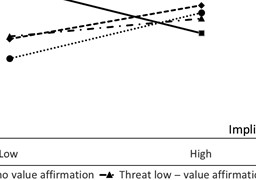л°©м–ҙм Ғ н–үлҸҷмқҖ мӮ¬лһҢл“Өмқҙ к°ңмқём ҒмңјлЎң кіөкІ©мқ„ л°ӣм•ҳлӢӨкі лҠҗлӮ„ л•Ң лӮҳнғҖлӮҳлҠ” мқјл°ҳм Ғ л°ҳмқ‘мқҙлӢӨ. мӢ¬лҰ¬м Ғ л°©м–ҙм—җлҠ” мҡ°лҰ¬к°Җ мһҳлӘ»н–Ҳмқ„ л•Ң мҡ°лҰ¬ мһҗмӢ мқ„ к·ё мғҒнҷ©м—җм„ң лІ—м–ҙлӮҳкІҢ н•ҳлҠ” м—¬лҹ¬ к°Җм§Җ л°©лІ•л“Өмқҙ нҸ¬н•ЁлҗңлӢӨ. мҳҲлҘј л“Өм–ҙ, мқҙлҜё л°ңмғқн•ң мқјмқ„ мһҳлӘ» м„ӨлӘ…н•ҳкұ°лӮҳ мһҳлӘ» кё°м–өн•ҳкі , лӢӨлҘё мӮ¬лһҢм—җ лҢҖн•ң 비лӮңмқ„ 비нҢҗн•ҳлҠ” мӨ‘мҡ”н•ң м •ліҙм—җ мЈјмқҳлҘј кё°мҡёмқҙм§Җ м•Ҡкі , м•јкё°лҗң н”јн•ҙлҘј мөңмҶҢнҷ”лЎң 축мҶҢн•ҳкі , мұ…мһ„мқ„ кұ°л¶Җн•ҳкұ°лӮҳ, м „м ҒмңјлЎң нҷҳкІҪмқҙлӮҳ мғҒнҷ© нғ“мңјлЎң лҸҢлҰ¬лҠ” кІғ л“ұмқҙ к·ёкІғмқҙлӢӨ.
мөңк·ј вҖҳлёҢлҰ¬нӢ°мӢң м Җл„җ мҳӨлёҢ мҶҢм…ң мӮ¬мқҙмҪңлЎңм§Җ(British Journal of Social Psychology)вҖҷм—җ л°ңн‘ңлҗң м—°кө¬м—җ л”°лҘҙл©ҙ л°©м–ҙлҠ” л¶Җм •м Ғмқё мӮ¬нҡҢм Ғ л°ҳмқ‘м—җ мқҳн•ҙ к°•нҷ”лҗҳкі , мӮ¬лһҢл“Өмқҙ к·ёл“Өмқҳ к·ёлЈ№ м •мІҙм„ұм—җ лҢҖн•ҙ мЎҙмӨ‘л°ӣкі , к°Җм№ҳмһҲкі , м•Ҳм „н•ҳлӢӨкі лҠҗлӮ„ л•Ң к°җмҶҢн•ҳлҠ” кІғмңјлЎң лӮҳнғҖлӮ¬лӢӨ.
м§ҖлӮң мҲҳ л…„ лҸҷм•Ҳмқҳ м—°кө¬м—җ л”°лҘҙл©ҙ м—°кө¬мһҗл“ӨмқҖ л¬ҙм–ёк°Җ мһҳлӘ»н•ң мӮ¬лһҢмқ„ лӢӨлЈ° л•Ң л°©м–ҙл Ҙмқ„ мӨ„мқҙлҠ” к°ҖмһҘ мўӢмқҖ л°©лІ•мқҙ мһҗмӢ мқҳ кІ¬н•ҙлӮҳ н–үлҸҷм—җ лҸҷмқҳн•ҳм§Җ м•ҠлҚ”лқјлҸ„ к·ё мӮ¬лһҢм—җ лҢҖн•ң мЎҙмӨ‘кіј к°Җм№ҳлҘј к°•мЎ°н•ҳлҠ” кІғмһ„мқ„ л°ңкІ¬н–ҲлӢӨ. мқҙлҠ” нҠ№м • л¬ём ңм—җ лҢҖн•ҙ мқҙм•јкё°н•ҳкё° м „м—җ к·ё мӮ¬лһҢмқҙ мһҗмӢ мқҳ к°Җм№ҳлҘј н‘ңнҳ„н• мҲҳ мһҲлҠ” кё°нҡҢлҘј м ңкіөн•ҳлҠ” кІғмқҙ мӨ‘мҡ”н•ҳлӢӨлҠ” кІғмқ„ м•Ңл ӨмӨҖлӢӨ.
мқҙ м—°кө¬лҠ” лІ”мЈ„лӮҳ мң„л°ҳм—җ лҢҖн•ң л°©м–ҙм Ғ л°ҳмқ‘мқҙ л¬ём ңлҘј мҳ¬л°”лҘҙкІҢ мӢқлі„н•ҳкі н•ҙкІ°н•ҳкё° мң„н•ҙ н–үлҸҷн•ҳлҠ” мҡ°лҰ¬мқҳ лҠҘл Ҙмқ„ м•Ҫнҷ”мӢңнӮӨлҠ” мқҙмң лҘј м„ӨлӘ…н•ңлӢӨ. л°©м–ҙм Ғ л°ҳмқ‘мқҖ м •л¶ҖмҷҖ к°Ғ кё°кҙҖ лӮҙ мқҳмӮ¬ кІ°м •, кҙҖкі„, мӢ¬м§Җм–ҙ мҡ°лҰ¬ мһҗмӢ мқҳ к°ңмқём Ғ мӣ°л№ҷкіј кҙҖл Ён•ҳм—¬м„ңлҸ„ л¶Җм •м Ғ мҳҒн–Ҙмқ„ лҜём№ҳкё° л•Ңл¬ёмқҙлӢӨ.
л¬јлЎ , мөңм Ғмқҳ л°ҳмқ‘мқҖ кұ°мқҳ н•ӯмғҒ мһҗм—°мҠӨлҹҪкұ°лӮҳ мҲҳмӣ”н•ҳм§Җ м•ҠлӢӨ. нҠ№нһҲ мҡ°лҰ¬м—җкІҢ мһҳлӘ»мқ„ м Җм§Ҳл ҖлӢӨкі мҡ°лҰ¬к°Җ мғқк°Ғн•ҳлҠ” мӮ¬лһҢкіј л§ҲмЈјн–Ҳмқ„ л•Ң к·ёл ҮлӢӨ. мӮ¬лһҢл“Өмқҙ мҡ°лҰ¬ мӮ¬нҡҢм—җм„ң лӯ”к°Җ мһҳлӘ»лҗң кІғмқ„ м Ғл°ңн• л•Ң, мҡ°лҰ¬мқҳ ліёлҠҘмқҖ мў…мў… к·ёкІғл“Өмқ„ лӮҷмқём°Қкұ°лӮҳ кұ°л¶Җн•ҳкұ°лӮҳ нҳ№мқҖ мІҳлІҢн•ҳл Ө н•ңлӢӨ. н•ҳм§Җл§Ң мқҙкІғмқҖ мӢңк°„мқҙ м§ҖлӮЁм—җ л”°лқј л°©м–ҙм Ғ лҢҖмқ‘л§Ң к°•нҷ”н• лҝҗмқҙлӢӨ. к·ёлҰ¬кі мқҙлҠ” к·ё мӮ¬лһҢм—җ кҙҖн•ң кІғмқҙ м•„лӢҲлқј 비мҠ·н•ң мғҒнҷ©м—җ мһҲлҠ” лӢӨлҘё мӮ¬лһҢл“Өм—җ кҙҖн•ң кІғмқҙлӢӨ.
мӢ¬лҰ¬м Ғ л°©м–ҙлҠ” мһҗкё° л°©м–ҙм Ғ л°ҳмқ‘мқҙл©°, м–ҙл–Ө к°ҖлІјмҡҙ нҳ•нғңм—җм„ңлҠ” мӢӨнҢЁ нӣ„ мҡ°лҰ¬лҠ” лҗҳлҸҢлҰ¬кі , мҡ°лҰ¬лЎң н•ҳм—¬кёҲ лӮҷкҙҖмЈјмқҳмҷҖ мһҗмЎҙк°җмқ„ мң м§ҖмӢңнӮӨлҸ„лЎқ н•ҳлҠ” лӘҮ к°Җм§Җ мқҙм җмқҙ мһҲмқ„ мҲҳ мһҲлӢӨ. н•ҳм§Җл§Ң л°©м–ҙм—җлҠ” 비мҡ©мқҙ л°ңмғқн•ңлӢӨ. к·ёкІғмқҖ мқҳмӮ¬ кІ°м •м—җ мӮ¬к°Ғ м§ҖлҢҖлҘј л§Ңл“ лӢӨ. к°ңмқёкіј к·ёлЈ№мқҙ л°©м–ҙм ҒмңјлЎң лҢҖмқ‘н•ҳл©ҙ, л¬ём ңк°Җ мқёмӢқлҗҳм§Җ м•Ҡкі н”јн•ҙмһҗ лҳҗн•ң мқём§Җлҗҳм§Җ м•Ҡмңјл©°, кҙҖкі„л“ӨмқҖ м•…нҷ”лҗңлӢӨ.
м—°кө¬мһҗл“ӨмқҖ мқёк°„л“Ө к°„мқҳ мң„л°ҳ мӮ¬н•ӯмқҙлӮҳ мЈ„м—җ лҢҖн•ң л°ҳмқ‘мқ„ кІҖнҶ н•ң л’Ө, к·ёкІғмқ„ мңӨлҰ¬м Ғ мң„л°ҳмңјлЎң мқём§Җн–ҲлӢӨ. мқҙлҹ¬н•ң л§ҘлқҪм—җм„ң мұ…мһ„мқ„ нҡҢн”јн•ҳкұ°лӮҳ, 비лӮңмқ„ 비нҢҗн•ҳкұ°лӮҳ, н”јн•ҙлҘј 축мҶҢн•ҳлҠ” кІғ, к·ёлҰ¬кі лҸ„лҚ•м Ғ м •лӢ№нҷ”мҷҖ к°ҷмқҖ вҖҳл°©м–ҙм Ғ н–үлҸҷл“ӨвҖҷмқҖ мӮ¬лһҢл“Өмқҙ лӮҷмқёмқҙ м°ҚнһҲкұ°лӮҳ кұ°л¶ҖлҗЁмқ„ лҠҗлӮ„ л•Ң лҚ” лҠҳм–ҙлӮҳлҠ” кІғмңјлЎң лӮҳнғҖлӮ¬лӢӨ.
мқёк°„мқҖ к·ёл“Өмқҙ нӣҢлҘӯн•ҳкі м Ғм Ҳн•ң к·ёлЈ№ кө¬м„ұмӣҗ лҳҗлҠ” кҙҖкі„ нҢҢнҠёл„Ҳлқјкі лҠҗлҒјлҠ” мӮ¬лһҢл“Өм—җкІҢ мҶҚн•ҳкі мӢ¶мқҖ, к·ёлҰ¬кі к·ёл“Өм—җкІҢ к°Җм№ҳлҘј мқём •л°ӣкі мһҗ н•ҳлҠ” мқјм°Ём Ғмқё мӢ¬лҰ¬м Ғ мҡ•кө¬лҘј к°Җм§Җкі мһҲлӢӨ. мӮ¬лһҢл“Өмқҙ л¬ҙм–ёк°ҖлҘј мһҳлӘ»н•ҳл©ҙ мқҙ кё°ліём Ғмқё мӢ¬лҰ¬м Ғ мҡ•кө¬к°Җ мң„нҳ‘мқ„ л°ӣм•„ л°©м–ҙм Ғ лҢҖмқ‘мңјлЎң мң лҸ„лҗңлӢӨ. к·ёлҹ¬лӮҳ мҶҢмҶҚлҗҳкі мӢ¶мқҖ мӢ¬лҰ¬м Ғ мҡ•кө¬к°Җ н•ҙкІ°лҗҳл©ҙ, к·ёл“Өмқҳ л°©м–ҙл Ҙмқ„ к°җмҶҢмӢңнӮ¬ мҲҳ мһҲлӢӨ.
лӢӨмӢң л§җн•ҙ, мӮ¬лһҢл“ӨмқҖ к·ёл“Ө мһҗмӢ мқҳ к·ёлЈ№ м •мІҙм„ұ лӮҙм—җм„ң м•Ҳм „н• л•Ң лҚң л°©м–ҙм Ғмқҙ лҗңлӢӨ. к·ёлҰ¬кі мқҙлҠ” мӨ‘мҡ”н•ң мӮ¬кұҙмқ„ л…јмқҳн•ҳкё° м „м—җ к·ёл“Ө мһҗмӢ мқҳ к°Җм№ҳлҘј к°•нҷ”н•ЁмңјлЎңмҚЁ лӢ¬м„ұлҗңлӢӨ.
- British Journal of Social Psychology, вҖңThe Effects of Moral/Social Identity Threats and Affirmations on Psychological Defensiveness Following Wrongdoing,вҖқ by Michael Wenzel, Lydia Woodyatt, Ben McLean. ©2020 John Wiley & Sons, Inc. All rights reserved.
To view or purchase this article, please visit:
The effects of moral/social identity threats and affirmations on psychological defensiveness following wrongdoing - Wenzel - 2020 - British Journal of Social Psychology - Wiley Online Library
Defensive behaviors are common responses when people feel personally attacked. Psychological defensiveness includes the many ways that we let ourselves off the hook when we do wrong: misrepresenting or misremembering what occurred, not paying attention to information that is critical deflecting blame to others, minimizing any harm caused, denying responsibility, or disengaging entirely from the situation.
Research published recently in the British Journal of Social Psychology showed that defensiveness is strengthened by negative social responses but is reduced when people feel respected, valued, and secure in their group identity.
Based on research over the past several years, the researchers found that when dealing with someone who may have done something wrong the best approach to reducing defensiveness is to emphasize respect and value for the person, even if you disagree with their views or actions. They found that itвҖҷs important to provide an opportunity for the person to express their values prior to talking about the specific problem.
This research explains why defensive responses to transgressions undermine our ability to identify a problem correctly and act to solve it. This has a negative impact on decision-making within government and organizations, in relationships, and even in relation to our own individual wellbeing.
Of course, the optimal responses do not always feel natural or easy - especially when faced with someone who we think has done wrong to us. When people are caught doing something wrong in our society, our instinct is often to stigmatize, reject, or punish them, but this is likely only strengthening those defensive responses over time. And it not just in regard to that person, but to other people in similar situations.
Psychological defensiveness is a self-protective response, and in some mild forms may have some benefits such as helping us to bounce back after failures and helping us to maintain optimism and self-esteem, but defensiveness also has costs. It creates blind spots in decision-making. When individuals and groups respond defensively problems go unrecognized, victims go unacknowledged, and relationships deteriorate.
The researchers examined defensiveness in response to interpersonal transgressions and perceived ethical violations. In these contexts, defensiveness behaviors such as denying responsibility, deflecting blame, minimizing harm, and moral justifications increased when people felt stigmatized or rejected.
Humans have a primary psychological need to be valued and included by others, to feel that they are good and appropriate group members or relationship partners. When people do something wrong this primary psychological need is threatened, driving a defensive response. But addressing that psychological need to belong can reduce their defensiveness.
Alternatively, people were less defensive when they were secure in their own group identity, achieved through reinforcing their own values prior to discussing the underlying event.
References
British Journal of Social Psychology, вҖңThe Effects of Moral/Social Identity Threats and Affirmations on Psychological Defensiveness Following Wrongdoing,вҖқ by Michael Wenzel, Lydia Woodyatt, Ben McLean. ©2020 John Wiley & Sons, Inc. All rights reserved.
To view or purchase this article, please visit:
The effects of moral/social identity threats and affirmations on psychological defensiveness following wrongdoing - Wenzel - 2020 - British Journal of Social Psychology - Wiley Online Library







